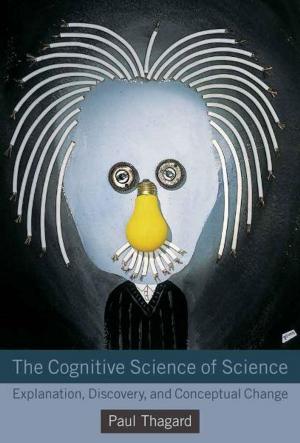Consciousness Demystified
Nonfiction, Health & Well Being, Psychology, Cognitive Psychology, Science & Nature, Science, Biological Sciences| Author: | Todd E. Feinberg, MD, Jon M. Mallatt, PhD | ISBN: | 9780262349406 |
| Publisher: | The MIT Press | Publication: | August 31, 2018 |
| Imprint: | The MIT Press | Language: | English |
| Author: | Todd E. Feinberg, MD, Jon M. Mallatt, PhD |
| ISBN: | 9780262349406 |
| Publisher: | The MIT Press |
| Publication: | August 31, 2018 |
| Imprint: | The MIT Press |
| Language: | English |
Demystifying consciousness: how subjective experience can be explained by natural brain and evolutionary processes.
Consciousness is often considered a mystery. How can the seemingly immaterial experience of consciousness be explained by the material neurons of the brain? There seems to be an unbridgeable gap between understanding the brain as an objectively observed biological organ and accounting for the subjective experiences that come from the brain (and life processes). In this book, Todd Feinberg and Jon Mallatt attempt to demystify consciousness—to naturalize it, by explaining that the subjective, experiencing aspects of consciousness are created by natural brain processes that evolved in natural ways. Although subjective experience is unique in nature, they argue, it is not necessarily mysterious. We need not invoke the unknown or unknowable to explain its creation.
Feinberg and Mallatt flesh out their theory of neurobiological naturalism (after John Searle's biological naturalism) that recognizes the many features that brains share with other living things, lists the neural features unique to conscious brains, and explains the subjective–objective barrier naturally. They investigate common neural features among the diverse groups of animals that have primary consciousness—the type of consciousness that experiences both sensations received from the world and affects such as emotions. They map the evolutionary development of consciousness and find an uninterrupted progression over time, without inserting any mysterious forces or exotic physics. Finally, bridging the previously unbridgeable, they show how subjective experience, although different from objective observation, can be naturally explained.
Demystifying consciousness: how subjective experience can be explained by natural brain and evolutionary processes.
Consciousness is often considered a mystery. How can the seemingly immaterial experience of consciousness be explained by the material neurons of the brain? There seems to be an unbridgeable gap between understanding the brain as an objectively observed biological organ and accounting for the subjective experiences that come from the brain (and life processes). In this book, Todd Feinberg and Jon Mallatt attempt to demystify consciousness—to naturalize it, by explaining that the subjective, experiencing aspects of consciousness are created by natural brain processes that evolved in natural ways. Although subjective experience is unique in nature, they argue, it is not necessarily mysterious. We need not invoke the unknown or unknowable to explain its creation.
Feinberg and Mallatt flesh out their theory of neurobiological naturalism (after John Searle's biological naturalism) that recognizes the many features that brains share with other living things, lists the neural features unique to conscious brains, and explains the subjective–objective barrier naturally. They investigate common neural features among the diverse groups of animals that have primary consciousness—the type of consciousness that experiences both sensations received from the world and affects such as emotions. They map the evolutionary development of consciousness and find an uninterrupted progression over time, without inserting any mysterious forces or exotic physics. Finally, bridging the previously unbridgeable, they show how subjective experience, although different from objective observation, can be naturally explained.















